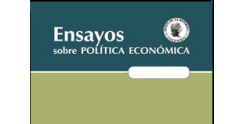This paper reviews the close relationship between business cycle and public finances in Colombia. The international evidence shows that cyclical movements in output systematically affect the balance of public finances. Therefore, the assessment of cyclical and structural components of the budget balance becomes an important tool in the analysis of fiscal policy, because it may allow fiscal authorities to determine the extent to which the fiscal stance in a particular year reflects their discretionary actions. Our findings indicate that the cyclical component of the central government balance in Colombia has been fairly small in recent times (for about 10% of the overall deficit). Governments are not usually neutral during the business cycle. Ideally, they ought to practice a countercyclical fiscal policy to moderate the magnitude of output fluctuations. However, in emerging economies, countercyclical fiscal policies are inhibited by domestic and external factors. Using a standard reduced form model closely connected to the government budget constraint, we find that fiscal policy in Colombia has been procyclical over the last 45 years or so, with the primary sur-plus falling (and the deficit rising) as a share of GDP by approximately 1/5th of a percentage point when the output gap increases by one percentage point.
